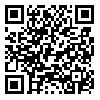Tue, Aug 26, 2025
[Archive]
Volume 11, Issue 3 (Summer 2025)
JCCNC 2025, 11(3): 209-218 |
Back to browse issues page
Download citation:
BibTeX | RIS | EndNote | Medlars | ProCite | Reference Manager | RefWorks
Send citation to:



BibTeX | RIS | EndNote | Medlars | ProCite | Reference Manager | RefWorks
Send citation to:
Phuk M, Mohite V, Mane M. Stress Management Intervention for Nursing Students Working Night Shifts. JCCNC 2025; 11 (3) :209-218
URL: http://jccnc.iums.ac.ir/article-1-678-en.html
URL: http://jccnc.iums.ac.ir/article-1-678-en.html
1- Krishna Institute of Nursing Sciences, Karad, India. , mulikmanda@gmail.com
2- Krishna Institute of Nursing Sciences, Karad, India.
2- Krishna Institute of Nursing Sciences, Karad, India.
Abstract: (392 Views)
Background: Clinical training on shift duty is critical to nursing education and practice. Stress in night shift duties is a common issue in the nursing field, potentially harming the well-being and academic performance of nursing students. The current study examined the effect of a targeted stress management intervention on self-reported stress levels and stress-related symptoms among night shift nursing students.
Methods: A quasi-experimental one group pretest-posttest design was adopted, with 60 students chosen from Krishna Vishwa Vidhyapeeth, Krishna Institute of Nursing Sciences, Maharashtra, Karad-India using a non-probability convenient sampling method. The Perceived Stress Scale (PSS-10) and a self-structured questionnaire were used to measure stress and the influence of stress on nurses' health. The intervention consists of four 30-minute sessions delivered on alternate days of the week through a range of teaching modalities. Following each session, students received video links and were encouraged to apply one of the appropriate stress-reduction techniques with a weekly follow-up for one month. Following 30 days, a post-test was administered. Data analysis was done using descriptive and inferential statistics and to test the research hypothesis, paired t test was used in InStat 3 software. The significance level was set at P<0.05.
Results: Pre-intervention, 36 students (60%) experienced moderate stress, followed by 16 (26.66%) experiencing mild stress, and 8 (13.33%) experiencing severe stress after the night shift. In contrast, 39 students (65%) reported mild stress and 21 (35%) reported moderate stress following the intervention. The paired t-test value was 29.854, with a P value of <0.01, which was significantly higher than the tabulated t value. After a night shift, nursing students experienced stress-related symptoms such as insomnia, loss of appetite, fatigue, decreased attention, headache, and leg discomfort, which were significantly alleviated after the intervention (P<0.05).
Conclusion: Stress management interventions were effective in reducing stress levels; however, students must be continually motivated to engage in these exercises daily.
Methods: A quasi-experimental one group pretest-posttest design was adopted, with 60 students chosen from Krishna Vishwa Vidhyapeeth, Krishna Institute of Nursing Sciences, Maharashtra, Karad-India using a non-probability convenient sampling method. The Perceived Stress Scale (PSS-10) and a self-structured questionnaire were used to measure stress and the influence of stress on nurses' health. The intervention consists of four 30-minute sessions delivered on alternate days of the week through a range of teaching modalities. Following each session, students received video links and were encouraged to apply one of the appropriate stress-reduction techniques with a weekly follow-up for one month. Following 30 days, a post-test was administered. Data analysis was done using descriptive and inferential statistics and to test the research hypothesis, paired t test was used in InStat 3 software. The significance level was set at P<0.05.
Results: Pre-intervention, 36 students (60%) experienced moderate stress, followed by 16 (26.66%) experiencing mild stress, and 8 (13.33%) experiencing severe stress after the night shift. In contrast, 39 students (65%) reported mild stress and 21 (35%) reported moderate stress following the intervention. The paired t-test value was 29.854, with a P value of <0.01, which was significantly higher than the tabulated t value. After a night shift, nursing students experienced stress-related symptoms such as insomnia, loss of appetite, fatigue, decreased attention, headache, and leg discomfort, which were significantly alleviated after the intervention (P<0.05).
Conclusion: Stress management interventions were effective in reducing stress levels; however, students must be continually motivated to engage in these exercises daily.
Full-Text [PDF 565 kb]
(126 Downloads)
| | Full-Text (HTML) (144 Views)
● Working night shifts and disrupted sleep patterns can have severe effects on the physical and psychological health of nursing students who have recently entered the profession.
● It is essential to incorporate structured stress management interventions into nursing education to enhance the health and academic performance of nursing students exposed to night shifts.
● Selective stress management interventions significantly reduced stress levels and related symptoms among night shift nursing students.
● It is essential to incorporate structured stress management interventions into nursing education to enhance the health and academic performance of nursing students exposed to night shifts.
● Selective stress management interventions significantly reduced stress levels and related symptoms among night shift nursing students.
Plain Language Summary
Nursing is universally acknowledged as a high-stress profession, with night shifts posing additional challenges. Night shift duties are integral to nursing education and practice, but they can also elevate stress levels, potentially impacting nursing students’ well-being and academic performance. Night shifts disrupt natural sleep-wake cycles, leading to long-term health issues such as gastrointestinal problems, cardiovascular risks, and behavioral changes, alongside impaired academic performance and mental health concerns. By equipping students with tools such as yoga, meditation, pranayama, muscle relaxation, and music therapy, they can manage stress more effectively and enhance their overall well-being. Importantly, the study highlights the need for ongoing encouragement and support to ensure that students consistently practice these interventions.
Type of Study: Research |
Subject:
General
Received: 2024/10/11 | Accepted: 2025/04/6 | Published: 2025/08/1
Received: 2024/10/11 | Accepted: 2025/04/6 | Published: 2025/08/1
Send email to the article author
| Rights and permissions | |
 |
This work is licensed under a Creative Commons Attribution-NonCommercial 4.0 International License. |






